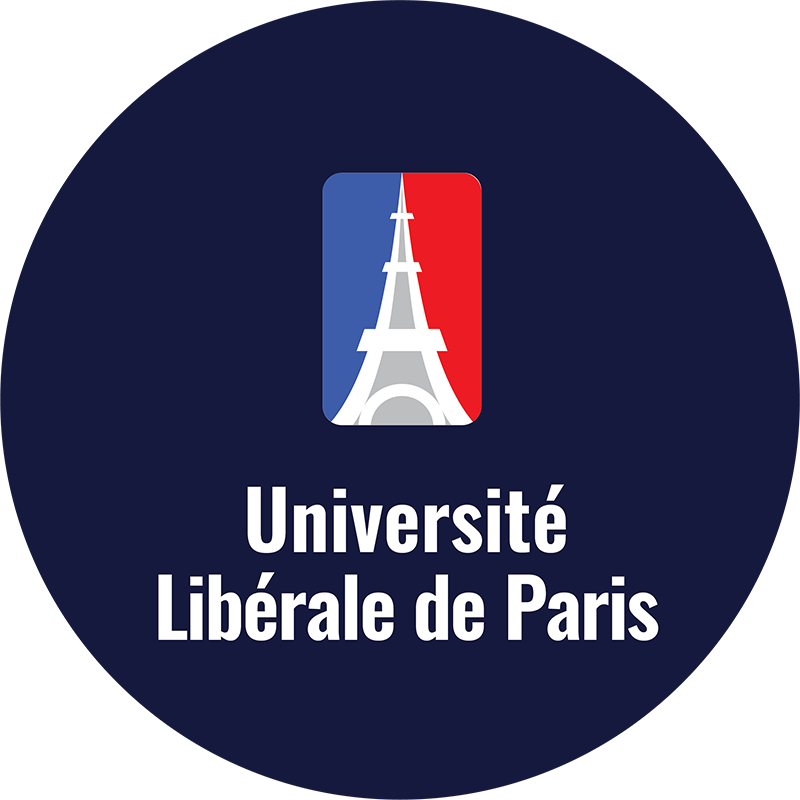
Micro Master’s Degree in Engagement of Employees and Organisational Learning
Micro Master's Degree in Engagement of Employees and Organisational Learning
A Level 7 qualification is a Master's degree
This unit aims to develop learners’ understanding of contemporary issues in the Engagement of Employees, Organisational Learning, people management, and development. Learners will examine and critically evaluate human resource management’s purpose and objectives and design and implement HR action plans to promote employee engagement and organizational performance.
Level 7 is equivalent to Master’s level and could transfer 20 credits and total tuition fees to Master programs of Paris-U.
Programs in details
Learning Outcomes:
- Understand the role of the Human Resource function in contemporary organisations.
1.1 Discuss the responsibilities of HR about relative organisational objectives.
1.2 Analyse the role of HR in organisational learning and effective change management.
1.3 Critically evaluate the Process and factors of effective Workforce planning.
2. Understand the goals of Human Resource Management.
2.1 Analyse approaches and models of HR service delivery within organisations.
2.2 Evaluate HR functions between organisations from different sectors.
2.3 Analyse methods of evaluating HR function.
2.4 Evaluate the possible contribution of HR to organisational performance and objectives.
3. Understanding, designing and implementing HR action plans for promoting employee engagement and organisational performance.
3.1 Analyse factors affecting employee learning and employee engagement in a given context
3.2 Explore the critical contribution of employee engagement as a route to strategic and competitive
3.3 Excellence within a high-performance working environment.
3.4 Design and implement an HR action plan for promoting employee engagement and organisational performance.
4. Understand the correlation between organisational performance and management of Human Resources.
4.1 Examine HR contemporary issues affecting organisational performance.
4.2 Critically analyse the impact of investment in human capital on organisational performance.
4.3 Critical examine approaches to evaluating the effectiveness of the HR function.
4.4 Critically evaluate the role of Human Resources in assessing organisational performance.
- Develop, advise, and implement policies relating to the effective use of personnel within an organisation. Organisational development and organisational learning. Theories of learning.
- The formulation and implementation of processes of learning and talent development strategies.
- Process and factors of Workforce planning and skill mix, training and development contribute to the delivery of organisational aims and objectives.
- Change management.
- Change barriers: e.g. Uncertainty, poor planning, lack of consensus, resistance, leadership challenges and manager challenges.
- Changing context of HR delivery; classic, business partnering, shared services, centres of expertise; normative perspective, the critical perspective, behavioural perspective, systems perspective, and agency or transaction cost perspective; challenges; and drivers, skills, boundaries.
- Evaluation: Rationale for evaluating HR functions, i.e. future investment, improvement, workforce planning and intellectual capital, accountability, motivation and productivity.
- Evaluation models, Kirkpatrick, return on investments models, “Balanced Scorecard”, and others: Public-private, and sector goals, aims, objectives and differences.
- The theories of employee engagement, the relationship of employee engagement, learning, and managerial leadership.
- HR strategies and development of human resource management (HRM) competitive differentiators.
- Factors affecting employee learning and employee engagement.
- The relationship of employee engagement with employee performance and organisational performance.
- Design and implement action plans for promoting employee engagement and organisational performance.
- Understanding contemporary issues (PESTEL, Competition, organisational) that affect organisational performance.
- HRM Performance relationship: theoretical frameworks such as HRM practice lead to HR outcomes lead to organisational performance what leads to what, i.e. ‘black box’ studies; Gallup studies, strength-based performance management; definition of human capital, i.e. the economic value of employee skills, etc. decision making, education, training, health; and HR metrics.
- Rating scales, critical incidents, job satisfaction, objective production, judgemental evaluation, peer and self-assessment and negotiated performance appraisal.
- Evaluation of HR functions, i.e. Future investment, improvement, workforce planning and intellectual capital, accountability, motivation and productivity, etc.
- Evaluation models. Kirkpatrick, return on investments models, “Balanced Scorecard” and others.
Indicative Reading list
- Bothma, R. and Brewster, C. (2012). Contemporary Issues in Human Resource Management. Oxford: Oxford University Press
- Boxall, P., Purcell, J. and Wright, P. (2007). The Oxford Handbook of Human Resource Management. Oxford: OUP.
- Cascio, W. and Boudreau, J. (2010). Investing in People: Financial Impact of Human Resource Initiatives Hardcover. London: Pearson FT Press.
- Gibb, S. (2007). Human Resource Development: Processes, Practices and Perspectives. Basingstoke: Palgrave.
- Marchington, M. & Wilkinson, A. (2011). Human Resource Management at Work: People Management & Development. 5th Edition. London: CIPD.
- Rees, G. and French, R. (2013). Leading, Managing and Developing People. London: Chartered Institute of Personnel and Development.
- Taylor, S. (2011). Contemporary Issues in Human Resource Management. London: CIPD.
Entry requirements
To enroll in the Micro Master program, the learner must possess the following:
- Graduated with a Bachelor’s degree from an accredited university or achieved a Level 6 Diploma according to the European Qualifications
- For a non-global accredited university degree, The learner should have followed the Accreditation of Prior Experimental Learning for Qualification (APELQ) policy of Université Libérale de Paris (Paris-U).
- Learners must be over 21 years old.
Université Libérale de Paris reserves the highest decision-making power for admission whether to accept or not accept after a specific review of each candidate’s profile to ensure they can comprehend and gain benefits when participating. For the fake university or diploma mills, SIMI shall not be accepted.
English requirements
Proof of English language proficiency must be provided if a learner is not from a predominantly English-speaking country.
- Common European Framework of Reference (CEFR) level B2 or equivalent
- Or A minimum TOEFL score of 101 or IELTS 6.5; Reading and Writing must be at 6.5 or equivalent.
After graduating from Micro Master programs, students receive all certified documents from Université Libérale de Paris.
Certified Documents:
- e-Certificate from Université Libérale de Paris.
- Hard copy certificate from Université Libérale de Paris
- Accreditation of Prior Experiential Learning for Qualification (APELQ) certified from Paris-U for credit and tuition fee transfer
- Accreditation & Recognition certified from Paris-U
Because the program is accredited and recognized, students can easily use certified in the working environment and have many opportunities for career advancement. In addition, in case if you want to study for a university degree, students can convert all credits and the full tuition fee when participating in the program Paris-U.
Université Libérale de Paris’s Micro Master Degree means:
Paris-U Micro Master Degree is certified at the master level and is equivalent to:
- Level 7 Certificate of Regulated Qualification Framework (RQF) of the UK
- Level 10 certificate of Scottish Credit and Qualifications Framework (SCQF)
- Level 7 Certificate of Credit and Qualifications Framework (CQFW)
- Level 7 certificate of European Qualifications Framework (EQF)
- Level 9 certificates of the Australian Qualifications Framework (AQF)
- Level 7 certificate of ASEAN Qualifications Reference Framework (AQRF)
- Level 9 certificate of the African Continental Qualifications Framework (ACQF)
Students can convert all credits and the full tuition fee when participating in the Paris-U academic programs if they want to study for an academic degree.
Credits transfer:
Learners can accumulate 20 credits from the Micro Master program when participating in the Master of Arts in Human Resource Management (MAHRM) at Paris-U. Please see the credit transfer policy HERE.
Tuition fee transfer:
When participating in the MAHRM program, students who have graduated from the Micro Master program will receive a discount equivalent with short courses tuition fee for each certified. Please see the tuition fee transfer HERE.
[APEL.Q] – Accreditation of Prior Experiential Learning (APEL) for Award of Academic Qualifications (Q) is the award of academic qualifications to individual learners through the evaluation and assessment of prior experiential learning towards fully accredited programmes offered by Paris-U. A degree with [APEL.Q] pathway is granted based on the knowledge, skills, and competencies acquired through formal, informal, or non-formal learning.
As a crucial component of Liberal Education, Paris-U is the first university in the world to implement the APEL.Q approach to acknowledge experience and knowledge fully. Assist students in becoming rapidly recognised and entering the labor market.
Short Courses Certified programs are wholly approved and recognised according to the same rigorous standards as academic degree programs. Learners might include this qualification in their portfolios when submitting for the APEL.Q examination.
Please note that the APEL.Q process will lead to only an MAHRM degree from Paris-U, not a dual degree. For more information, read more HERE
Université Libérale de Paris (Paris-U) Certified program is not-for-profit, so the tuition fees are fully supported by Paris-U’s partners. Université Libérale de Paris reserves the right not to accept more students if the number exceeds the quotas.
Apply Policy:
- To participate in Paris-U’s Short courses program, students need to meet the entry criteria corresponding to each level. Please see the “Entry” tab for more details.
- Paris-U will only accept applicants if their entry qualifications are from diploma mill universities or schools/universities that are accredited.
- For Level 7 short courses programs, if an entry bachelor is unavailable, students must demonstrate a minimum of 5 years of work experience in the relevant field. Please note that a bachelor’s degree is required for the Master’s program at Paris-U, so you could take the Micro Master program but could not move to the Master’s program at Paris-U.
- English is not a mandatory entry requirement for short course programs, but candidates must ensure that English is used in reading documents, listening to lectures, and doing assignments. Candidates should note that English is mandatory when switching to an academic program at Paris-U.
Apply Process:
- Choose the program that suits your requirements. Note that applicants without a university degree will not be able to participate in the program at Level 7, and applicants without a Master’s degree will not be able to participate in the program at Level 8.
- Email your application to support@paris-u.fr with all the required documents. You could download the application form here.
- Our admission department will reach out to you and guide you through further processes if the registration documents need to be supplemented.
- Université Libérale de Paris will issue the Letter of Acceptant (LOA). You will proceed to the next steps according to the instructions and pay the tuition fee.
- Université Libérale de Paris will issue a student confirmation letter, login account to the e-learning system and related documents.
- You have become an official Paris-U student and enjoy your study journey.
The Short Courses Certified program is a fully online program. You can study anytime, anywhere. The final exam will be uploaded to the system and marked by the academic panel of Paris-U. Students must submit assignments on time. Otherwise, the student is considered not to continue the program.


Tuition fees
Tuition policies are in keeping with the provisions of the Paris-U policy and are subject to change without notice. In some cases, Paris-U offers a variety of Scholarships for International Students.
Université Libérale de Paris
Université Libérale de Paris (Paris-U) offers higher education programmes in English only and that are different from the French National Curricula and Programmes leading to French Government accredited university qualifications, which falls under the French Public Higher Education sector.
The world’s first liberal arts university for post-graduates
1 Rue de Stockholm • 75008 Paris, France
Phone: +33758491227
Email: support@paris-u.fr
A member of the European Education Holdings
Wertachstrasse 21 • 86153 Augsburg, Germany
Phone: +15908605264
Email: support@education.holdings
About Paris-U
Programs
Paris-U members
Paris-U systems
Paris-U policies
Clauses of Use
Acceptable Use
Intellectual Property and Trademarks
Ethics Code
Student Policies
Refunds

